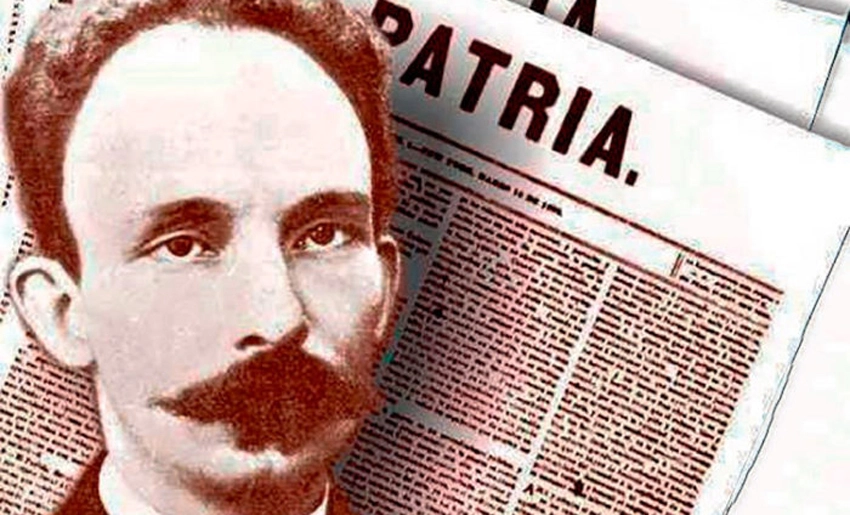On March 14, 1892, at the age of 39, José Martí published the first issue of the newspaper Patria in New York, giving impetus to the preparatory work for the Necessary War, fast and efficient. Which he considered the only way to achieve Cuba’s freedom.
He used the word again to name it, this time without an adjective, as he did with the first and only issue of Patria Libre, founded by him at the age of 16, which evidenced the primordial place that the independence of his homeland had always occupied in his heart and in his work.
His purpose was to bring together Cubans in exile for the sake of the cause, and to unite, above all to unite, all compatriots and obtain the essential resources for such an enterprise.
The magnitude of the objective, sacred to him, led him to the appearance of “Patria”, as well as the Cuban Revolutionary Party on April 10 of that same year.
By then, José Martí was already a renowned poet and chronicler who collaborated with important Latin American newspapers, such as its correspondent in New York, and had been Consul of Uruguay in the northern country.
Feeling all the time the love for Cuba, it was natural that he put his political and ideological wealth, including his humanist heritage, in the forging first of the newspaper Patria, which had to fulfill certain missions and more of the Cuban Revolutionary Party, unique and alone.
The creator of “Patria” never claimed that it was the official organ of the Party of the Revolution.
It is evident that such a declaration was never necessary because those who scrutinize his career saw that in practice he would be the means or vehicle used in the ideological work, unifying and convening in favor of the freedom not only of Cuba, but also of Puerto Rico.
Some experts in the field believe that the Martí newspaper is the best exponent of the creativity of its founder within that guild. Never were patriotism, feelings or the bonds of being close to him stronger than his objectivity, political height, depth and analysis.
The texts corresponded to the ideals of independence, truth, justice and equality, values in which he believed and to the awareness that “Patria” had to do a lot by speaking directly to Cubans inside and outside, urging them to fight, to unite and to contribute to the great cause.
In “Patria” the mature and progressively evolved Martí is present, just as he promised from his earliest years. In addition to founding it, he was the director of that political publication that came out every Saturday, circulated among the revolutionaries in exile and was sent to the island clandestinely.
He fulfilled that duty until death. And although writing was not his main mission but the general preparation for war, he found time to appear in the newspaper.
When “Patria” was born, it no longer collaborated of its own free will with the media of other countries, but it understood that both the publication and the Party were core, and would help expand the convening force of the Revolution.
With Martí’s creation, journalism was created that put into practice a link with ideology, unusual, which was reviled by the media of the time, invaded from its birth by mercantilism dictating the lines of text.
“Patria” spoke with truth and reason and appealed to feelings at the right time.
Its format responded to what is now known as the tabloid. It consisted of four pages in four columns, with an unusual size today (52 x 36 cm). It was distributed mainly by mail.
Also in its first issue it disseminated the Bases of the Cuban Revolutionary Party and an article of his: Our Ideas, in which he stated that “Patria” was born to unite and love, and to live in the passion of truth.
Finally only death separated him from “Patria”. When he was finally able to leave to fulfill his libertarian dream, he did not part with the newspaper, quite the contrary. His collaborators assured that from the Cuban countryside he felt like his War Correspondent and continued, through letters, to give instructions for its better execution.
With information from Agencia Cubana de Noticias/ Translated by Radio Angulo
- Six Cuban Films Shortlisted for the Platino Awards - 8 de February de 2026
- Cuba Receives International and UN Support Despite Blockade - 8 de February de 2026
- Transportation services reduced due to energy crisis - 8 de February de 2026

